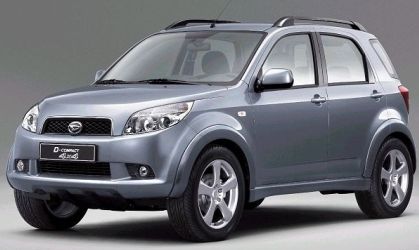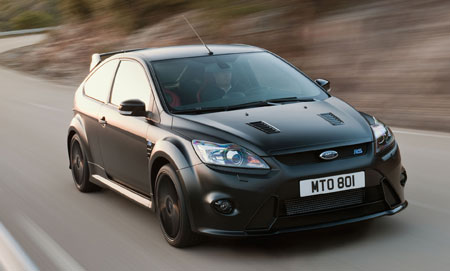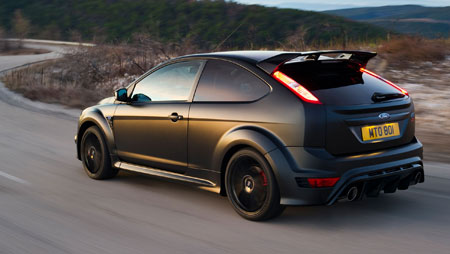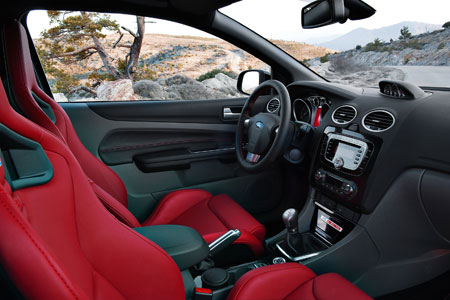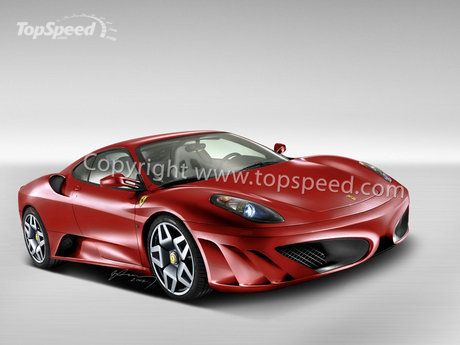
Today at the 2010 New York Auto Show, Mercedes-Benz showed that it's still behind the all-but-forgotten "Sports Tourer" when it unveiled the heavily restyled 2011 R-Class. The minivan-that-isn't-a-minivan has had a rough life up to this point. It was never really marketed well by Mercedes, and the droopy snout never really helped. Like Jennifer Gray though, it's amazing what a new nose can do for you.
The 2011 model adopts the automaker's new corporate face with its larger three-pointed star resting inside that upright rectangular grille. It does just enough to butch it up and make the front end handsome. Although in profile, it does look a bit like an extended wheelbase Honda CRV with that sloping D-Pillar. Out back there's also a revised rear bumper with integrated reflectors, new lenses and a new black diffuser below the bumper.
Interior changes are small, and Mercedes only announced an R350 BlueTEC 4MATIC and R350 4MATIC model for the U.S. for 2011. The 3.0 liter BlueTEC V6 with 210 horsepower and 400 ft-lb of torque is capable of 18/24 miles per gallon, giving it a range of more than 500 miles or just about two tankfuls to Wally World. Pricing wasn't announced, but the new R-Class should be priced similar to the 2010 models, or $51,675 for the R320 BlueTEC and $50,175 for the R350 4MATIC.
The MY2011 Mercedes-Benz R-Class - Safety, Luxury and First-Class Comfort Bold New LookOne look is all it takes to see that the new MY2011 R-Class conveys a new level of assertiveness, underscoring the unique personality of this multi-talented vehicle. The completely redesigned front end completely transforms its overall appearance, taking its inspiration from Mercedes-Benz sedans and SUV models. Alongside its fresh exterior, the inner values of the redesigned MY2011 R-Class also speak for themselves. These include the spaciousness of a luxury SUV, as well as the safety, style and exclusivity of a Mercedes-Benz sedan. At the same time, the latest generation offers the interior versatility central to the R-Class vehicle concept, while also delivering the all-weather confidence of 4MATIC allwheel drive as standard (U.S. models only). The R-Class celebrates its world premiere at the New York International Auto Show (NYIAS) March 31, 2010.
Efficient EnginesFor the U.S. market, the R-Class is offered with a choice of two fuel-efficient engines. The R350 4MATIC delivers 268 hp and 258 lb-ft of torque, yet achieves an estimated 14/19 mpg (city/hwy), while the R350 BlueTEC 4MATIC is one of the world's cleanest diesel vehicles. The V6 turbodiesel engine generates an output of 210 hp (155 kW) and an impressive torque of 400 lb-ft. Equipped with the highly-effective AdBlue© exhaust treatment system for low emissions, the diesel engine achieves an estimated 18/24 mpg (city/hwy).
A New Level of Style and VersatilityThe redesigned R-Class features an assertive new design, further emphasizing the unique personality of this multi-talented vehicle. Designers focused their attention on completely restyling the front end, giving the R-Class a look that is both harmonious and powerfully dynamic. In addition to the hood, fenders, radiator grille, front fascia, headlamps and bumpers -- with chrome simulated underguards -- have all been completely redesigned. The face of the R-Class can be further enhanced with chrome trim incorporating optional LED daytime running lights in combination with bi-xenon headlamps.
Viewed from the side, the R-Class sets itself apart from conventional crossovers with the coupe-like line of its windshield and its distinctive, redesigned exterior mirrors and wheels. U.S. models feature standard 5-spoke, 19-inch wheels, with a 20-inch rim available on the R350 4MATIC as part of the Sport package. International market versions offer 5-spoke, twin 5-spoke and 10-spoke designs ranging from 17 to 21 inches (43.2 to 53.3 cm). The front-end design language continues through to the rear of the R-Class, with a restyled rear bumper with reflectors, standard LED rear taillights and integrated exhaust pipes.
Wellness program - relaxed ambience for long journeys and everyday useIf there was a versatility test for automotive interiors, the R-Class would surely be the top contender for first place. The seating variants in particular offer a wide range of possibilities - the R-Class was designed with a focus on comfort and security and with relaxed and safe travel in mind. Long wheelbase versions (short wheelbase not offered in the U.S.) offer seating for six people in the standard layout. Five, six and seven-seat configurations are also available (U.S. models offer standard seating for 6, with 7 passenger seating optional). Standard equipment includes partially poweroperated seats for the driver and front seat passenger. Active ventilated and heatedmulti-contour seats with full power adjustment and memory function are available as an option (special order in the U.S.) for front seat occupants.
The R-Class delivers a further benefit in the shape of its large, versatile luggage compartment. The short wheelbase version (not available in the U.S.) has a luggage capacity of up to 1,950 liters, while the long wheelbase version offers a maximum of 84 cu. ft./2,385 liters. All five-seat variants come with a separate load compartment beneath the floor of the main luggage area. The optional power liftgate -- controlled remotely from either switch or key fob -- facilitates easy entry to the cargo area. This makes the R-Class the most versatile and spacious vehicle in the entire Mercedes-Benz passenger vehicle lineup.
In the finely appointed, airy interior -- which feels even more spacious with the optional panorama glass roof -- new materials and color combinations raise the premium feel and quality of this luxury crossover. They also add to the hallmark Mercedes ambience onboard. U.S. models offer a choice of standard MB-Tex in Cashmere and Ash in addition to popular Black. European customers can select from a range of upholstery combinations that include "Aspen" fabric and MB-Tex simulated leather.
New to the international range are the two-tone interior finishes. The base color of Almond Beige can be combined with the contrasting Mocha Brown. Alternatively, there is the base color Alpaca Gray contrasting with deep Basalt Gray (choice of beige/black or grey/black on U.S. models). Both color combinations are applied to the cockpit, steering wheel, center console, seats, door trim and floor coverings. Contrasting seat piping complements standard MB-Tex or optional leather upholstery.
The AMG interior sports package (not available in U.S.) comes as standard with black Nappa leather upholstery. Alongside trim elements in dark brushed aluminum and chrome trim in Silver Shadow, customers can also order from opulent wood veneer trim in high-gloss eucalyptus, high-gloss burl walnut or poplar anthracite. U.S. models feature standard burl walnut trim or special order eucalyptus wood trim.
Extensive Model LineupEven in its base versions, the R-Class offers a wide range of personalization options. All models come fitted as standard with a vast array of details that make both longdistance travel and short city runs safe and comfortable. These include the unique PRE-SAFE® predictive occupant protection system, a comprehensive restraint system with eight airbags, NECK-PRO active head restraints, a tire pressure monitor and adaptive brake lights (not available in U.S.). Safety is further enhanced by powerful and user-friendly telematics systems like Audio 20, Audio 50 APS and COMAND APS.
U.S. models feature standard in-dash 6-disc DVD/CD changer with optional COMAND hard-drive navigation and harmon/kardon LOGIC 7 surround sound, as well as standard Bluetooth connectivity and available mbrace telematics. U.S. models features standard dual-zone climate control, while international market versions offer THERMATIC automatic climate control equipped with a combination filter for the further reduction of exterior air pollutants flowing into the cabin. The optional THERMOTRONIC (not available in U.S.) with its separate rear seat climate control optimizes interior air quality. The spacious glove box now comes with an AUXin jack for external audio and entertainment devices. Connectivity is further expanded by an optional media interface (UCI).
Alongside the extensive standard equipment, the R-Class also offers a vast range of assistance systems that define the highest level of comfort and safety and underscore the leading position held by the R-Class in this segment of the market. They include DISTRONIC adaptive cruise control, AIRMATIC air suspension with ADS adaptive damping, which are both available as special-order options in the U.S., or the optional Blind Spot Assist that can make lane changes significantly safer. State-of-the-art voice activation makes using the telematics system even more straightforward, while a rear view camera enables fast and easy parking or maneuvering in tight conditions. As soon as the driver shifts into "R", the camera image is displayed on the highresolution COMAND APS monitor. Rear seat passengers can enjoy their own entertainment program on board with the rear seat entertainment system. For increased comfort during the winter months, the second seat row can also be fitted with seat heating (special-order option in U.S.).
MY2011 R-Class - US model lineup and equipment optionsModel overview*
* R350 BlueTEC 4MATIC
* R350 4MATIC
*descriptions and data in this press kit apply to the Mercedes-Benz U.S. model lineup. Country-specific variations apply.
Standard equipment for first-class comfort and comprehensive safety
R350 BlueTEC 4MATIC* Fuel economy (city/hwy): 18 mpg/24 mpg
* 50-state availability
* 19" 5-spoke alloy wheels standard with all-season run-flat tires
* 4MATIC All-Wheel Drive
* Sport front and rear bumpers
* Chrome fog lam
* Privacy glass
* Burl Walnut wood trim
* Premium leather multifunction steering wheel
* Power rear quarter windows
* Bluetooth interface for hands-free calling
* Tire Pressure Monitoring System (enhanced)
* PRE-SAFE® predictive occupant protection system
* NECK-PRO front head restraints
R350 4MATIC* 4MATIC All-Wheel Drive
* Sport front and rear bumpers
* Chrome fog lamps
* Power tilt/sliding glass sunroof with sunshade
* Power rear quarter windows
* Bluetooth interface for hands-free calling
* In-dash 6-disc DVD/CD changer
* PRE-SAFE® predictive occupant protection system
* 19" AMG 5-spoke alloy wheels
* Tire Pressure Monitoring System (enhanced)
* Burl Walnut wood trim
* Privacy glass
* Premium leather multifunction steering wheel
* Chrome Package with dual chrome exhaust tips
* Dual-zone automatic climate control
WheelsR350 4MATIC
19" 5-spoke (8.0 x 19.0)
R350 BlueTEC 4MATIC
19" AMG 5-spoke (8.5 x 19.0)
Further attractive optional equipment adds to the R-Class experience:
Stand Alone Options* Parktronic
* 7-seat option
* Wood /leather multifunction steering wheelmbrace
* Panorama Sunroof with electric sunshade
* Heated leather multifunction steering wheel
* Trailer Hitch - 3,500 lbs . (Class II)
* 3-zone climate control and rear air conditioning
* Rear Seat Entertainment System
* Rear Seat Entertainment System Pre -Wiring
* Heated Front Seats
Optional Packages* Auto-dimming driver side and rear view mirrors
* COMAND system with hard-drive navigation
* Enhanced voice control for audio telephone and navigation
* Gracenote® media database
* HD Digital Radio®
* iPod/MP3 media interface (in glovebox)
* Memory Package for driver seat, power steering column and exterior mirrors
* Power folding mirrors
* Power liftgate
* Power steering column
* Rear view camera
* SIRIUS® Satellite Radio with SIRIUS real-time traffic service
* Zagat Survey® restaurant guide
* 115V AC power outlet
* 4GB hard-drive with Music Register for download of MP3 files
Premium 2 Package* harman/kardon LOGIC7® surround-sound system
* KEYLESS-GO
Sport Appearance Package* Dark tinted sport rear tail lamps
* Heat-absorbing blue tinted glass (first row only)
* 20" AMG 5-spoke wheel












